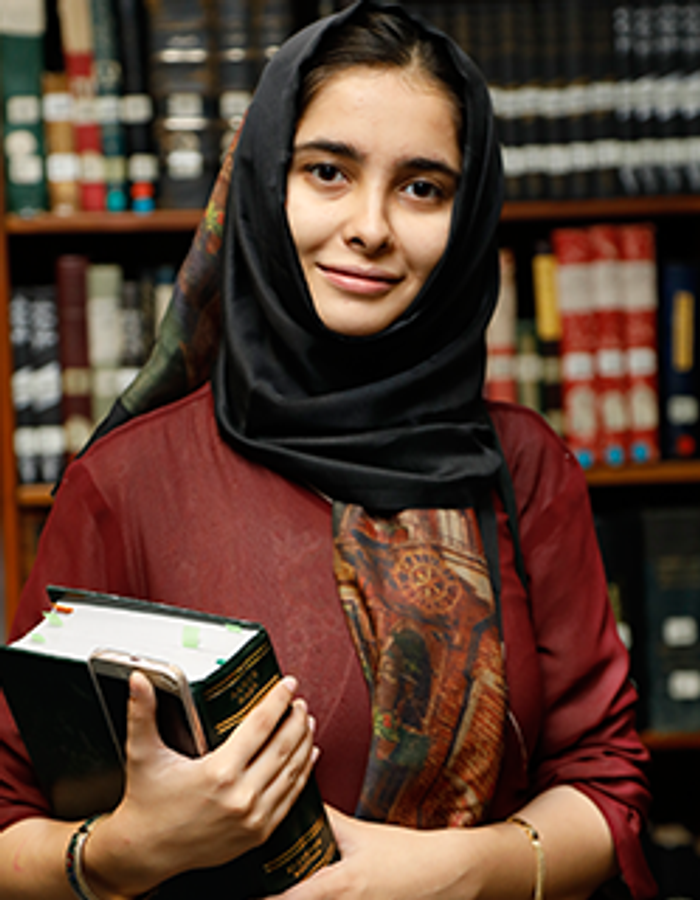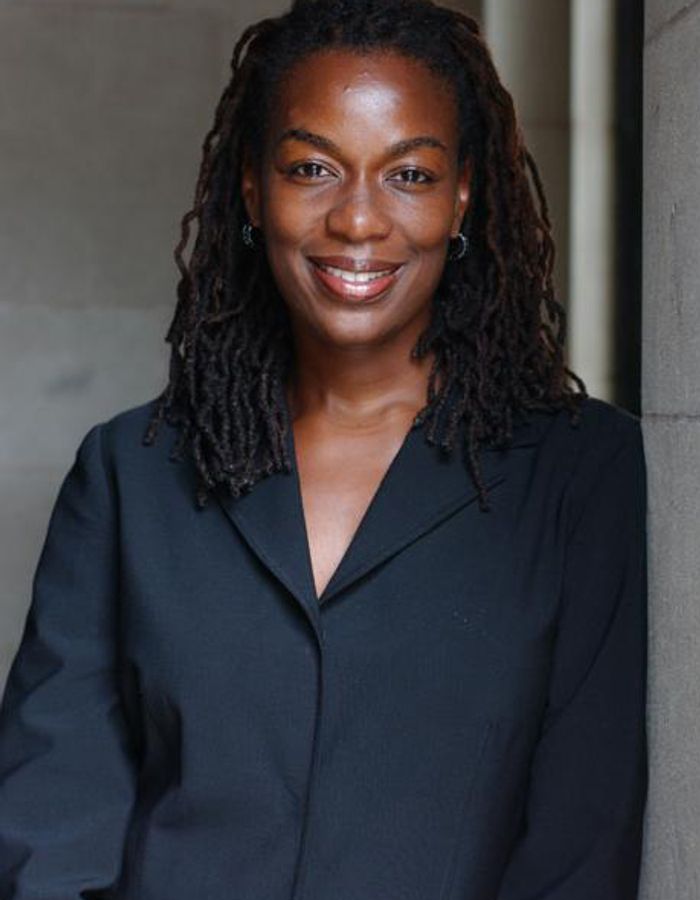The digital future of nonprofits: efficiency and impact through technology
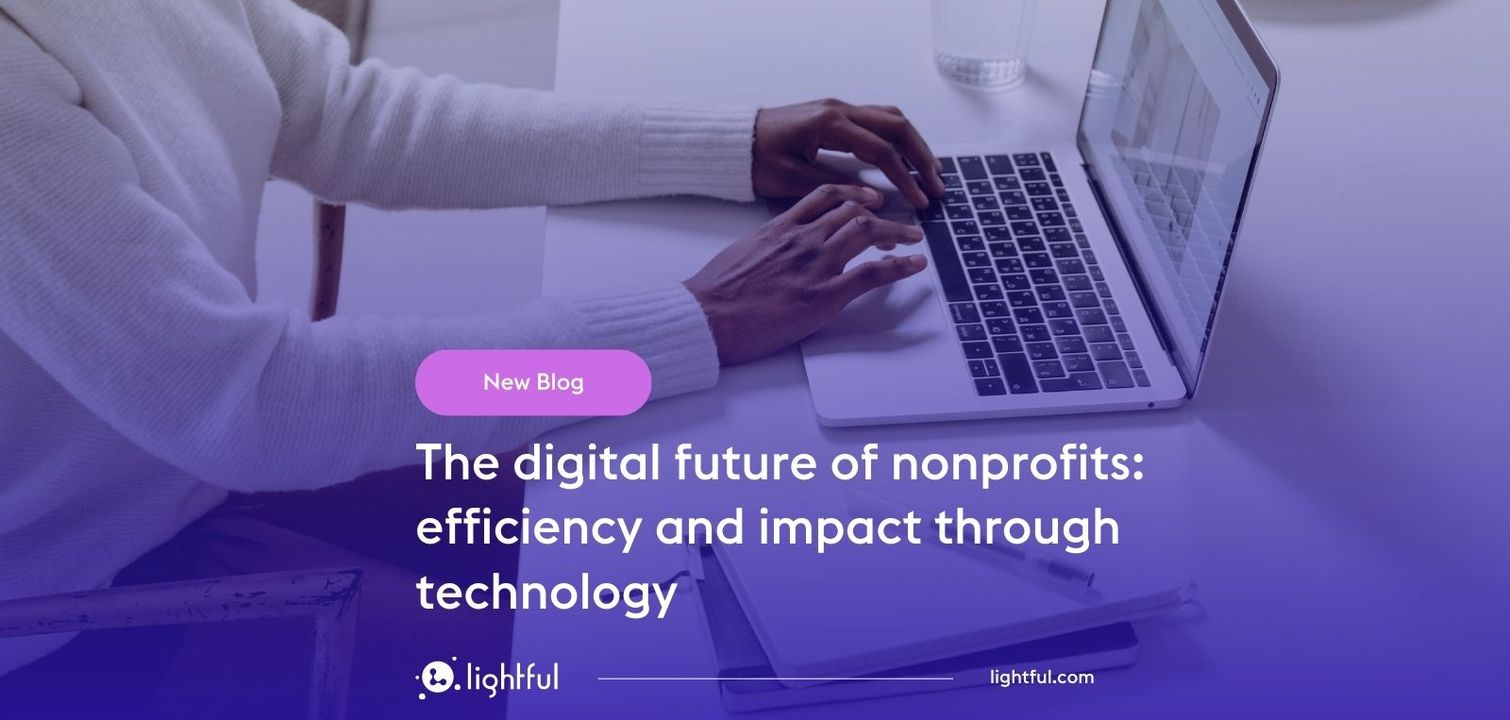
In today's fast-paced, technology-driven world, the power of digital transformation is more apparent than ever. For nonprofits, leveraging technology can be a game-changer, driving social good as well as enhancing efficiency and organisational resilience.
As digital interactions become more important, expectations for seamless digital experiences are getting higher and higher and charities, like any other organisations, must meet these expectations.
At Lightful we have long-recognised the importance of technology within the nonprofit sector. Embracing smart tech enables organisations to work faster, save time and save money. As well as improved efficiency, digital tools also ensure that nonprofits stay relevant and keep up with emerging trends. This is vital so that they can continue to raise awareness of their cause and drive change within their communities and beyond.
Despite the demand for digital skills, digital inequity is disempowering the sector, preventing it from reaching its potential and delivering even more impact. At Lightful, we are dedicated to changing this, providing small and medium sized nonprofits with digital capacity building skills, alongside digital and AI-powered tools, so that we are increasing their durability and #BuildingResilience of nonprofits.
Social media revolutionised the way we communicate, connect, and mobilise. For nonprofits, platforms like Facebook, Instagram, and LinkedIn offer unparalleled opportunities to reach wider audiences, engage supporters, and drive campaigns. In a similarly fast and explosive manner, the rise of Artificial Intelligence (AI) is also changing the way we work. It’s vital that digital innovations are available for everyone, unlocking the potential of even the smallest grassroots organisations. Just this week Charity Digital released a teaser statistic from their Digital Skills Report 2024 - 53% of small charities are using AI tools compared to 78% of large charities. Are charities and their teams ready to embrace AI and the digital-first world? How can they build their resilience and harness the power of digital for social good?
I spoke to Beth Kanter, one of Lightful’s earliest partners and advisors, about the road to digital transformation for charities. Beth is a prominent figure in this field and has long championed the potential of digital tools in transforming the sector.
Improved efficiency: leveraging AI
From AI-powered chatbots enhancing client support and response times, to personalised donor outreach, using generative AI can improve efficiency on so many levels. But where should a charity start?
Start with thinking about "exquisite pain points" in your workflow - what is a time suck or energy zapper or something you aren't doing because you don't have time but you should be doing to improve impact. For generative AI or LLMs (large language models), they are really good at helping you with a first draft of writing something if you tend to get stuck when confronted with a blank page or if you good at a first draft, but need help with editing something or rephrasing something so it is more succinct - LLMS are good with that task too. What I've found is that while nonprofit folks initially start with the benefit of efficiency, they are often surprised that using LLMs can help improve the quality of the work as well.
Learning and AI: digital as an enabler
The relationship between AI and humans will continue to evolve. As nonprofit professionals rely on AI to take on more routine tasks, they can focus on work that requires more emotional intelligence and strategic thinking… they can focus on what they do best, being human.
If we approach AI as more of an enabler rather than a replacement for human work, this shift will foster a more collaborative working environment where humans and AI can complement one another. How should charities approach AI?
Think of the tools as augmentation or helping you improve the quality of your work. The tools can't wholesale replace someone's complete job or are not yet as smart as a human (and there is debate whether they will reach that level or not!) For now, rather than treating an AI tool like LLM like a gumball machine and thinking it can complete a task from 0 to 100, figure out where you want it to assist you… Do you want feedback, recommendations, brainstorming, or help editing.
Responsible and ethical AI
Like with any new digital tool or platform, there are risks and ethical considerations to manage. Each organisation using smart technology will have their own approach, but everyone’s strategy should refer back to their organisation’s mission and core values. Emerging technologies like AI should always be pursued responsibly, especially for charities where trust and transparency are so important.
LLMs have been developed by big tech companies and trained on data from the Internet. They're not perfect and there are many potential challenges - for example they have ingested all the biases that exist on the Internet - so you have to be careful. There's a lot more to consider for ethical use of AI - but in the end you don't want to do any harm. Find out more here.
Any disruptive technology like AI or social media goes through certain cycles - early adopters, hype, backlash, and then becomes normalised. AI is moving a lot faster than social media so nonprofits might feel more pressure to move fast. I think we need to approach these tools slowly, with intention and thoughtfulness.
Driving impact: the power of digital for social good
The introduction of AI has caused a ripple effect across not just the nonprofit sector, but the world. Social media has revolutionised the way we campaign and advocate for the causes we care about. Yes there are dangers to the digital world, but there is also so much good. AI has its own risks and challenges, but ultimately, when used in the right way, it holds huge potential for driving positive social change.
There are both opportunities and challenges, but let's focus on the positive for now. These are powerful tools that could help us address some of the biggest problems facing our world and that the social sector is actively working on - curing disease, addressing climate change, helping with the next pandemic. That's on a big level. For nonprofits, the time that they can save from using these tools can be repurposed to more mission driven work - and help nonprofits achieve more impact.
AI’s ability to augment human capabilities rather than replace them is what will enable greater efficiency, accuracy and innovation within the nonprofit sector. However, nonprofits need the skills, tools and support to embrace AI and other smart technology. At Lightful we want to bridge the digital skills gap that so often leaves charities behind, and ensure that those doing the greatest good have access to the best technology to support their work.
We’re #BuildingResilience across the sector through our digital learning programmes. Find out in our latest impact Building Resilience Impact Report here.
Latest articles
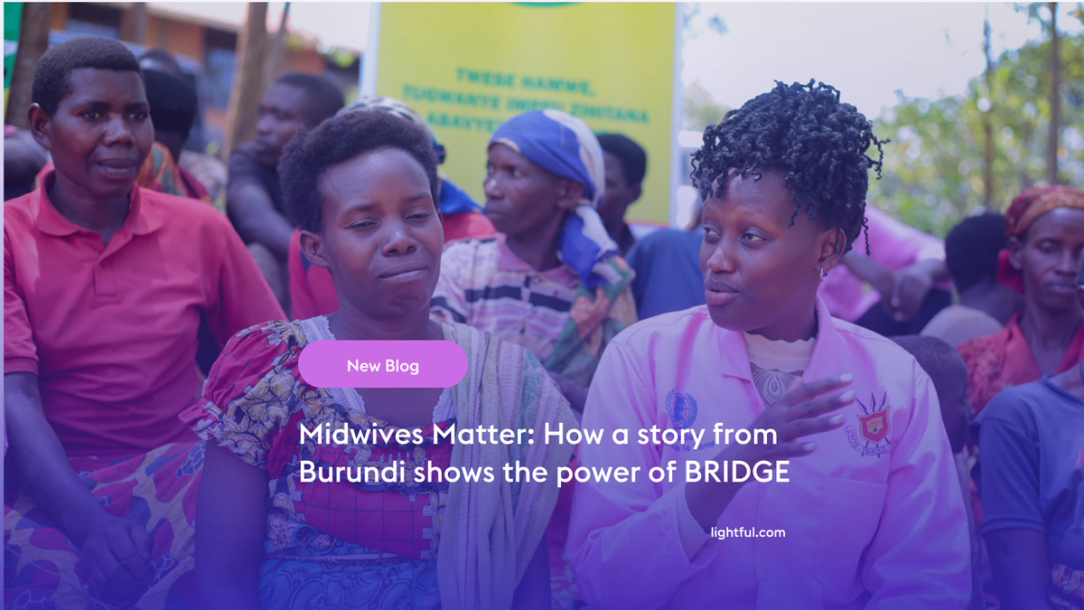
Over the past year, Lightful and the International Confederation of Midwives (ICM) have supported Midwives Associations across Africa, South Asia and the Eastern Mediterranean to build their digital confidence through our BRIDGE programme. These organisations were starting from very different places, but all shared the same goal: to use digital tools to strengthen their voice, raise their visibility and advocate for better outcomes for women and babies.
Related posts
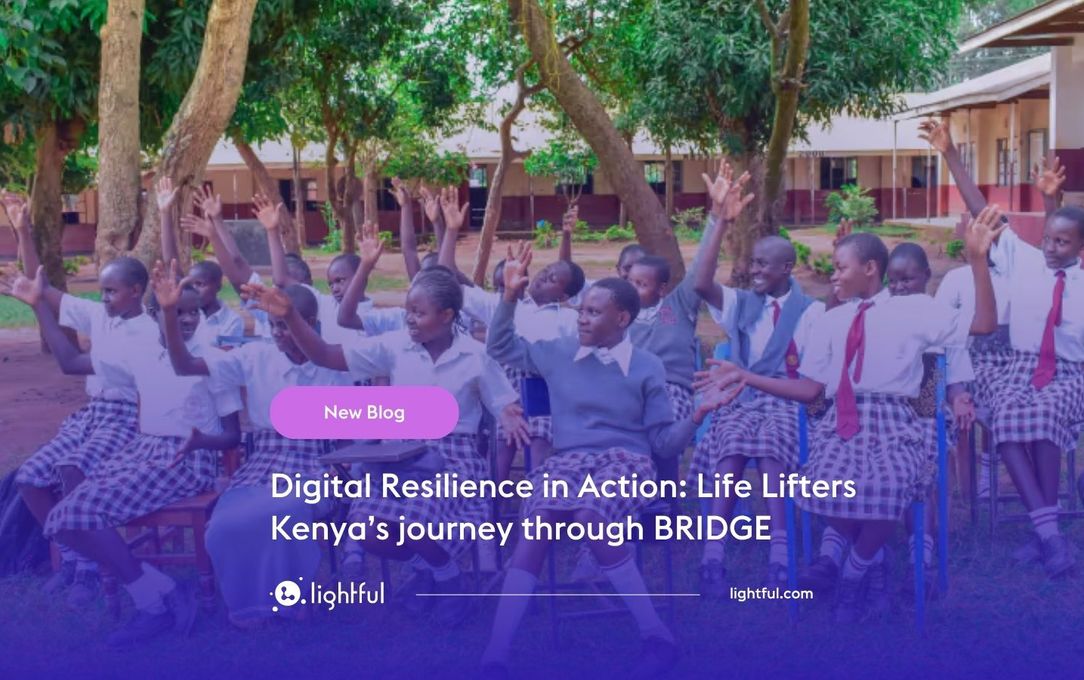
In today’s rapidly evolving digital landscape, the ability to engage online is a necessity. For nonprofits, especially those working in underserved regions or tackling complex social issues, digital tools can be the bridge between intention and impact. Whether it’s reaching new donors, advocating for policy change, or delivering services, digital capacity enables organisations to scale their mission and deepen their impact. Yet many grassroots organisations remain digitally under-resourced. That’s why Lightful created the BRIDGE programme - Building Resilience in Digital Growth and Engagement - to empower nonprofits with the skills, confidence, and strategies to thrive in the digital age and build lasting change.
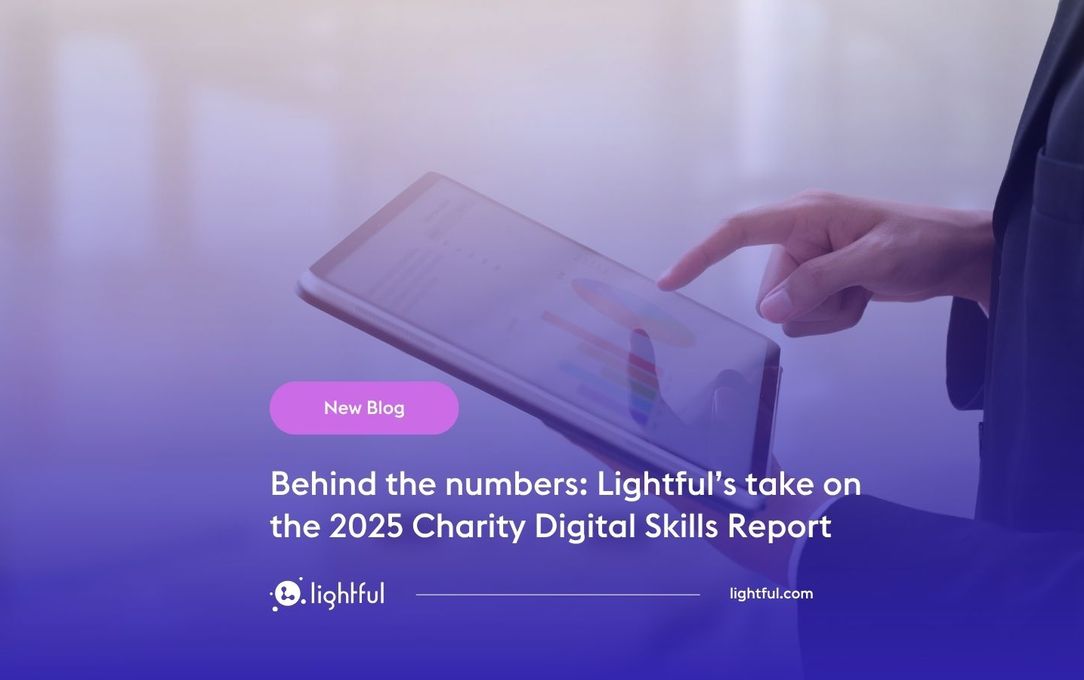
Advancing digital maturity: what Lightful has learned from supporting 3,500 charities globally
See who we help
Contact us
Want to learn more?
Email Jonathan and start a conversation





